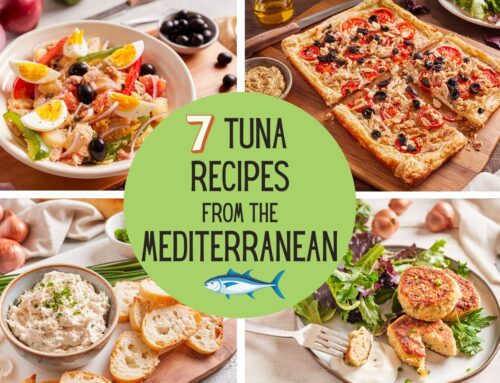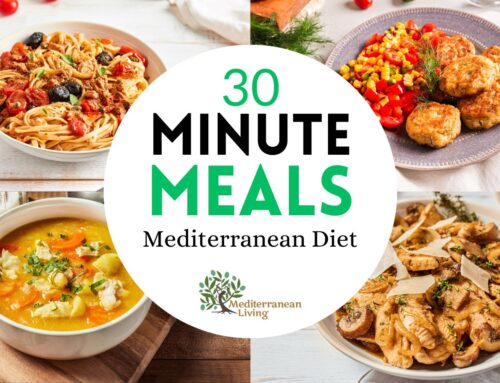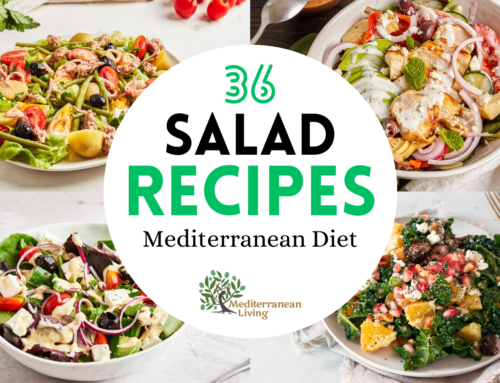The Cooling Health Benefits of Peppermint
By Christine Kenneally
Updated February 1, 2022
We all know and love the flavor of peppermint. It’s cooling, refreshing, invigorating, and slightly tingly. A cup of iced peppermint tea on a hot summer day is a wonderful treat, as is an after dinner mint, particularly after a heavy meal. Adding fresh mint to hot and spicy dishes, particularly to sauces, marinades and dips can balances the dish and cools the palate. Many spicy Middle Eastern dishes include peppermint for this reason.
Peppermint is wonderful in so many ways, some of which are paradoxical. This mysterious plant has many benefits. If you pay close attention while sipping your peppermint tea, you’ll notice that it has a cooling taste, but a warming aftertaste.
Typically, herbs that are warming are also stimulating, and herbs that are cooling are more relaxing. Peppermint has the best of both worlds! It belongs to a class of herbs known as nervines, which support the nervous system and help to relax us. But, peppermint contains menthol, which warms and stimulates the systems of the body. This makes it an excellent remedy for the flu- for those times when we feel both cold and hot at the same time. Herbalists used peppermint tea to treat patients during the flu epidemics of 1836 and 1838.
Peppermint also relaxes tension in our bodies and increases circulation, which helps to regulate our body temperature and also speeds healing. For this reason, peppermint can also be a special ally for menopausal women who experience hot flashes.
Peppermint is probably most widely known for its benefits to the digestive system. It’s great for curtailing indigestion and bloating. It also helps to reduce pain from stomach cramps. Its most active compound, menthol, is an anti-spasmodic, which helps us to digest our food much better. Remember the anti-spasmodic properties of peppermint the next time you get the hiccups and it may save the day!
Because peppermint has a unique combination of cooling and warming, calming and stimulating effects, it is a great (safe and legal) herb to use to enhance performance. Some bicycle racers in the Tour de France use peppermint tea to maintain a calm and balanced focus. Most of us can benefit from this amazing combination of helpful actions, even if we aren’t world-class athletes!
Using peppermint tea topically can help soothe irritated skin caused by sunburn, chafing, and heat rash. Peppermint is a great herb to have on hand for any number of ailments or first aid treatments.
How To Use Peppermint To Soothe Irritated Skin:
Brew a strong tea (use about 1 tsp of dried leaves or 2 tsp fresh leaves per cup of water), allow to cool, and splash over the affected area. You can also add 1-2 drops of peppermint essential oil to some plain cool water to get the same effect. You can find essential oils at your local herbal store, or at most natural foods markets and food co-ops.
Interestingly, Peppermint has been used throughout history in a variety of ways beyond the culinary and medicinal. It was used by the Pharasees as a form of currency, to pay tithes. Hebrews brought the leaves of peppermint into the synagogue to use as an air freshener. Ancient Greeks believed in the power of peppermint to bring good luck, so soldiers would rub their weapons with it before battle. During the Middle Ages, peppermint was used to ward off rodents from their storage of grains and cheese. Also during that time, monks began the practice of scrubbing their teeth with peppermint leaves to brighten and whiten. All of the peppermint flavored toothpastes and mouthwashes we use today can be traced back to this practice.
Mint is a common and traditional herb used in Mediterranean cuisines. The Greeks use it with abandon in the same way Italians use basil! Milder tasting varieties of mint (such as spearmint) are more commonly used in cooking. Tzatziki is a simple and delicious yogurt dip with diced cucumbers, dill, garlic and lots of mint. This versatile dish can replace any of your standard dips for veggie platters and appetizer spreads. It is also a wonderful accompaniment to grilled spiced vegetables like eggplant and zucchini, or any meat or fish dish. Tzatziki is very cooling and pairs well with any spicy dish to balance the flavors.
Mint also shows up in many recipes for kefta, a popular meatball dish in many Mediterranean cuisines. The savory and delicious combination of spices and herbs (cinnamon, cilantro, cumin, and of course mint) in these meatballs are what give them the signature Mediterranean flair. Other Mediterranean summer favorites celebrate mint, including a favorite of mine: tabbouleh! This cold salad is made with bulgur (cracked wheat) or couscous and lots of mint and parsley, green onions, cucumbers, lemon juice and olive oil. It is so fresh and delicious! Dolmades, or stuffed grape leaves are another way to showcase the appeal of mint. Dolmades are further enhanced by the addition of tzatziki for more minty deliciousness.
This summer, reach for the peppermint when you need to cool down, sharpen your focus, relieve indigestion, or sooth itchy irritated skin. Drinking peppermint tea regularly is great because its effects build over time. We also hope you’ll try our recipe for tzatziki, a delicious and cooling yogurt dip with mint and cucumber. It’s delicious for dipping raw veggies or for pairing with any variety of spicy hot dishes.
Some Recent Studies Showing The Effects of Peppermint Oil on Digestion:
//www.ncbi.nlm.nih.gov/pubmed/1646142
//www.ncbi.nlm.nih.gov/pubmed/19507027
Sources:
The Good Herb: Recipes and Remedies from Nature by Judith Benn Hurley
The Earthwise Herbal: Complete Guide to Old World Medicinal Plants by Matthew Wood.












Bill Bradley, R.D. says:
Bill Bradley, R.D. says:
Bill Bradley, R.D. says: